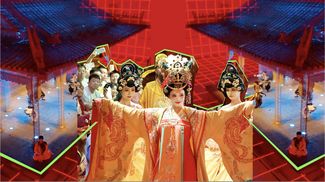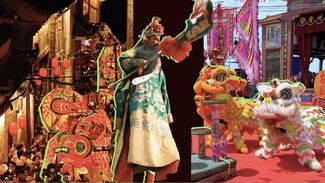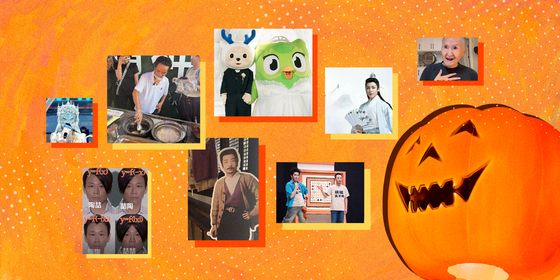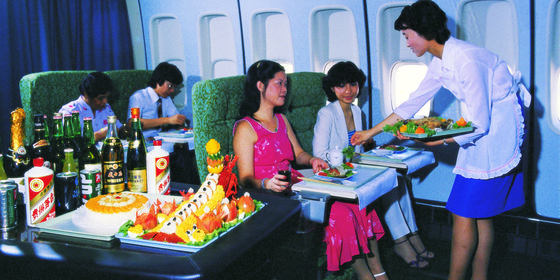As younger consumers favor experiences over products, “curator”-led cafés and boutiques have sprung up across China. Yet with growing pushback against overpriced, underwhelming offerings, is this trendy fad already losing its appeal?
If you’re a coffee fan in China, it’s increasingly likely that, aside from the ubiquitous Luckin Coffee, you’ll come across small, independent outlets that brand themselves as “curator cafés (主理人咖啡店 zhǔlǐrén kāfēidiàn).” Once cramped into tiny hole-in-the-wall spaces, these shops are often staffed by an ultra-trendy barista who’ll casually chat with you in a mix of Chinese and English. They’ll eagerly deliver a five-minute “estate story” about their beans, and probably end with, “You can’t find this anywhere else (你在别家可喝不到 Nǐ zài biéjiā kě hē bú dào).”
You might also find yourself petting the café’s resident cat as you reluctantly accept the 60 yuan minimum charge—only to end up spending 168 yuan on something from the “hidden menu (隐藏菜单 yǐncáng càidān).” Yet, despite your overpriced experience and the store’s overbearing “design”—a smattering of vinyl records and abstract paintings on the wall—you may still feel a trace of gratitude, as your visit was in fact to one of the more accessible curator cafés. After all, you didn’t need to make a reservation three days in advance.
Catch up on trending Chinese memes and slang:
- A Slang Guide to the Labubu Craze: More Than Just a Toy?
- Food Fight: China’s Food Delivery Platforms Go Toe to Toe
- Mastering the Art of Livestreaming Sales
Recently, there seem to be curators (主理人 zhǔlǐrén) flooding every part of China’s consumer sphere. There are bar curators (酒吧主理人 jiǔbā zhǔlǐrén), guesthouse curators (民宿主理人 mínsù zhǔlǐrén), wedding curators (婚庆主理人 hūnqìng zhǔlǐrén), club curators (俱乐部主理人 jùlèbù zhǔlǐrén), and even nebulously defined aesthetic curators (美学主理人 měixué zhǔlǐrén).
The trend is so pronounced that people have begun to joke:
If your social circle doesn’t include at least one or two curators running trendy cafés or boutiques, you probably don’t have any friends at all.
谁朋友圈要没一两个主理人,那可能压根儿就没有朋友。
The term “curator” is believed to have originated from Japan’s 1990s street fashion scene, where individuals with outsized influence made their names leading fashion brands or street-dance crews. Back then, a true curator wasn’t just someone running a brand; they were the soul behind it, constantly advocating their cultural values and philosophy. Such creatives were the street-side and cool answer to aloof, corporate slick.
The term became so fashionable that shop owners and brand founders began calling themselves 主理人, insisting that titles such as 老板 (lǎobǎn, boss) or 经理 (jīnglǐ, manager) were “too ordinary” to match their unique sense of style. As one netizen put it:
[Curators are] more stylish than a boss, more approachable than a CEO, more easygoing than a manager, and more romantic than a general director.
比老板更洋气,比CEO更亲和,比负责人更轻松,比总经理更浪漫。
But as the ranks of self-proclaimed curators expanded, the title’s credibility inevitably began to decline. Lacking any truly innovative brand concepts, many of China’s new curators could instead be seen as having mastered the art of creating endless rules and restrictions—all in the name of giving their products or cafés the illusion of exclusivity and quality.
While placing down a cup of their hand-brewed specialty coffee, a curator may say:
It’s recommended to take a sip of water first, allowing the palate to better perceive the flavors.
这边建议先喝一口水,让你的口腔更好地去感受。
If you dare ask for sugar or cream, expect a disappointed frown—and some sharp questions:
You want to add sugar to our Ethiopian single-origin beans? You don’t drink much hand-brewed coffee, do you? More of an instant-coffee type?
您是说要在我们埃塞俄比亚原生种的豆子里加糖吗?您平时不怎么喝手冲咖啡吧,是喝速溶比较多吗?
The curator’s distant and unapproachable demeanor has even prompted netizens to joke:
The specialty of the curator: ignoring consumers
主理人,主打一个不理人。
Unfortunately, no amount of delicious coffee can make up for this kind of customer experience—especially since specialty coffee is an acquired taste for many. As a result, curator cafés have become synonymous with overpriced drinks, bad taste, and endless pointless rules (高价、难喝、规矩多 gāojià, nán hē, guīju duō). As one netizen vented online:
In a tiny shop of less than 30 square meters, they somehow cram in over 200 house rules. And you’ll never find them written down—each one seems to spring straight from the owner’s imagination, decided on the spot.
一家不足30平方米的小店,他们能密密麻麻立下200条店规,这些规矩并不会明确地提出,完全是主理人梦到哪句说哪句。
Others chided:
Now, whenever I see the word ‘curator,’ I just want to run. It’s basically a pretentious way of saying, ‘Time to milk some naive customers!’
现在看到“主理人”三个字就想跑,感觉是“我要开始割韭菜了”的文艺说法。
Barely half a year after the term went viral in China, many curator shops are already facing a flood of negative reviews and even closures. At the same time, netizens joked that since “curator” is often just a title, anyone can be promoted to the position: stall owners selling jianbing (煎饼) can call themselves “gluten-free crêpe curators (无麸质可丽饼主理人 wúfūzhì kělìbǐng zhǔlǐrén)”; even a delivery driver can be a “curator of an urban delivery service (都市配送主理人 dūshì pèisòng zhǔlǐrén).”
Gen Z consumers may crave individuality and creativity, but they have little patience for pretense (装 zhuāng). Focused on price and substance rather than marketing hype, they “crave a sense of ritual, but refuse to be preached to (要仪式感,但拒绝被教育 yào yíshìgǎn, dàn jùjué bèi jiàoyù).” This, it seems, is their final dignity.
Why Gen Z Is Turning Against Curator Cafés in China is a story from our issue, “New Markets, Young Makers.” To read the entire issue, become a subscriber and receive the full magazine.












